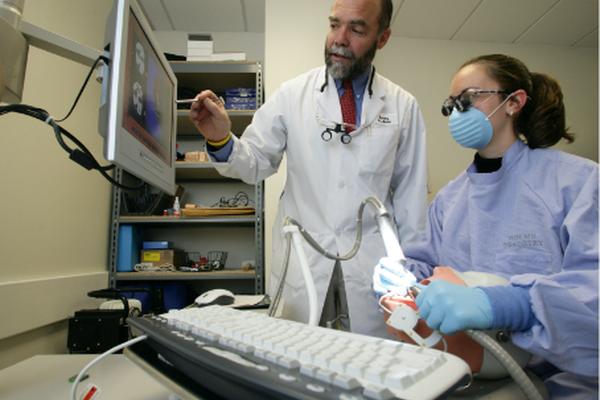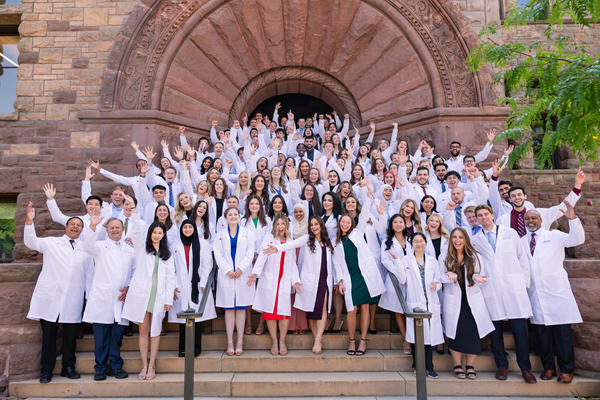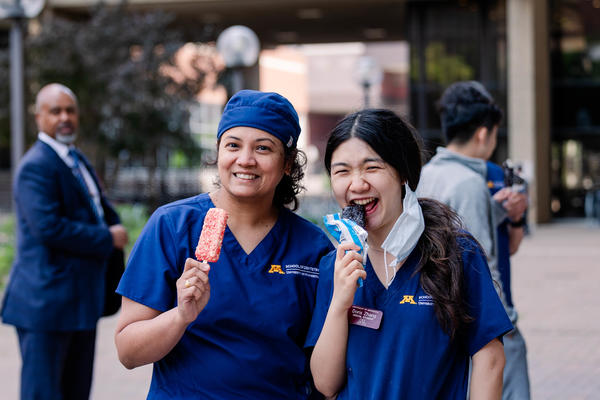

Advanced Technology
3M Foundation Dental Simulation Clinic
The 3M Foundation Dental Simulation Clinic, a facility designed to create a realistic clinic environment. It helps the students learn the eye-hand coordination and manual dexterity skills, techniques and procedures they’ll use to treat patients by practicing restorative procedures on simulated patients. Each workstation is equipped with a lifelike mannequin, complete with a head, shoulders, and realistic oral cavity—flexible jaws, lips and cheeks, and a full complement of teeth.


Student Life
DDS students participate in a variety of organizations, clubs and committees that provide an introduction to professional life, help them shape the future of dentistry, and give back to the Twin Cities community.
What to expect
DDS students enjoy a challenging, integrated curriculum of basic, clinical, and behavioral sciences in a supportive environment that is rich with opportunities for professional growth and community involvement.
First year - Coursework includes basic science courses on normal human tissues, including the molecular, cellular and organ systems. Technical dental courses, analysis of dental literature, introduction to the clinics, and ethical training applicable to the profession begin during the first year.
Second year - Basic science courses focus on pathology. Technical dental courses culminate in treating patients. Students provide episodic patient care.
Third year - Clinical science courses occupy much of the student's time. Correlations among basic, behavioral and clinical sciences are established in the clinical setting. Students establish their first dental practice and provide comprehensive patient care.
Fourth year - Clinical science training is completed in the school clinics as well as at outreach sites and the transition from school to practice begins.
Curriculum includes
Basic sciences - Gross and microscopic human anatomy, neuroanatomy, biochemistry, microbiology, pharmacology, human physiology, pathology, oral histology and embryology, and genetics.
Dentistry courses - Oral anatomy, operative dentistry, oral diagnosis, pediatric dentistry, oral surgery, anesthesia, periodontology, oral radiology, biomaterials, fixed and removable prosthodontics; and management and supervision of dental practice, jurisprudence, and ethics. Elective experiences are also available.
Behavioral science - Professional development, practice management, ethics, and dental public health.